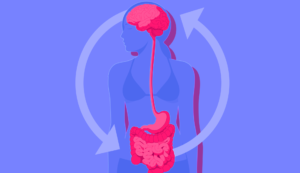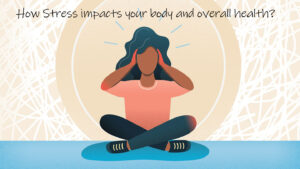Stress, often considered a silent assailant in our daily lives, affects more than just our mental well-being. Beyond the commonly known physical manifestations, stress plays a crucial role in the delicate balance between our body’s relaxation response and immune function. In this exploration, we delve into the intricate connection between stress, relaxation, and immunity, shedding light on how these elements intersect and influence our overall health.
The Physiology of Stress and Its Impact on Immunity

When stress takes center stage, our bodies respond with a complex cascade of physiological changes. The release of stress hormones, such as cortisol and adrenaline, triggers a “fight or flight” response. While this ancient survival mechanism has its merits, chronic stress can wreak havoc on our immune system. Research indicates that prolonged exposure to stress hormones can suppress the effectiveness of immune cells, making the body more susceptible to infections and diseases.
As stress becomes a constant companion in our fast-paced lives, it’s essential to understand how it disrupts the delicate equilibrium necessary for a robust immune response. Chronic stress not only weakens our first line of defense against pathogens but also contributes to inflammation, a precursor to various health issues. If you need to relieve stress you can eat milk chocolate edibles. It will help you relax.
The Yin and Yang of Relaxation: Counteracting the Stress Response
In the quest for optimal health, the role of relaxation cannot be overstated. Relaxation acts as the counterbalance to the stress response, exerting a positive influence on our immune system. Practices such as deep breathing, meditation, and mindfulness have been shown to reduce stress hormones and promote a state of calm that fosters immune resilience.
Moreover, engaging in activities that bring joy and fulfillment, whether it’s spending time in nature, pursuing creative endeavors, or fostering social connections, contributes to a well-rounded approach to relaxation. These practices not only alleviate stress but also enhance the body’s ability to mount an effective immune response when faced with challenges.
Stress can easily affect your skin. You can visit the skin care clinic in Markham if you need to enhance your look.
The Mind-Body Connection: A Nexus for Immune Modulation
The intricate relationship between the mind and body forms the nexus where stress, relaxation, and immunity converge. The field of psychoneuroimmunology explores the interplay between psychological factors, the nervous system, and the immune system. Studies in this domain reveal how our thoughts and emotions can significantly impact immune function.
Positive emotions and a resilient mindset have been associated with enhanced immune activity, while negative emotions and chronic stress contribute to immune suppression. Cultivating a positive mental outlook and adopting stress-management techniques can thus be viewed as proactive measures to bolster the body’s defense mechanisms.
If you need to relax and regain energy you should visit a spa in Toronto. It will also help you relieve stress.
Beyond the Obvious: Unconventional Paths to Relaxation
While traditional relaxation methods hold merit, exploring unconventional paths to relaxation can add a burst of variety to our wellness routines. Activities like laughter yoga, art therapy, or even engaging in playful pursuits have been shown to trigger the release of endorphins, our body’s natural feel-good chemicals.
These unconventional approaches not only inject an element of surprise into our relaxation repertoire but also stimulate different neural pathways, contributing to a more robust and adaptable nervous system. Embracing diverse relaxation strategies ensures a multifaceted approach to stress reduction, promoting overall well-being and immune resilience.
Embracing Resilience: The Role of Adaptive Stress Response
Beyond the dichotomy of stress and relaxation lies the concept of adaptive stress response. Contrary to viewing stress solely as a detriment, researchers have identified that acute, manageable stressors can actually prime the immune system for action. This phenomenon, known as hormesis, suggests that exposure to moderate stressors can stimulate cellular repair mechanisms and fortify immune cells, enhancing their responsiveness to future challenges.
Understanding stress as a potential catalyst for resilience prompts us to reconsider our approach. Rather than striving for a stress-free existence, fostering the ability to navigate and adapt to stressors becomes paramount. This adaptive stress response may involve exposing ourselves to controlled stressors, such as cold exposure or intermittent fasting, within limits that promote positive physiological adaptations. This nuanced perspective challenges the conventional narrative, encouraging a symbiotic relationship with stress for the betterment of our immune defenses.
Taking some courses like performing arts course could help you overcome stress and anxiety.
The Microbiome’s Influence: A Hidden Player in Immune Harmony

As we explore the intricacies of stress, relaxation, and immunity, delving into the microbiome unveils another layer of complexity. The gut microbiome, a vast community of microorganisms residing in our digestive tract, plays a pivotal role in immune modulation. Stress has been shown to alter the composition and diversity of the microbiome, potentially influencing immune function. Stress can damage your teeth and disturb your oral health. With preventive pediatric dentistry services in Fayetteville that won’t be a cause.
Conversely, the microbiome itself can communicate with the immune system, affecting its balance and responsiveness. Probiotics, prebiotics, and dietary fiber emerge as tools to support a diverse and resilient microbiome, fostering an environment conducive to optimal immune function. The quest for a robust immune system thus extends beyond stress management and relaxation, encompassing a holistic approach to gut health.
The Temporal Dimension: Circadian Rhythms and Immune Vigilance
Considering the temporal dimension adds another layer to our exploration. The body’s internal clock, governed by circadian rhythms, orchestrates a finely tuned symphony of physiological processes. Disruptions to these rhythms, often prevalent in modern lifestyles characterized by irregular sleep patterns and shift work, can compromise immune function.
Optimizing circadian rhythms involves more than just adhering to a regular sleep schedule. It encompasses aligning daily activities, such as eating and exposure to light, with the body’s natural rhythm. Studies indicate that a well-synchronized circadian system contributes to a more robust immune response. Embracing the ebb and flow of our internal clock becomes a strategic approach to fortifying our defenses against external challenges.
The Social Fabric: Relationships as a Pillar of Immune Health
Amid the exploration of stress, relaxation, and immunity, the social dimension emerges as a powerful influencer. Our connections with others, encompassing family, friends, and community, have profound implications for immune function. Social isolation and loneliness have been linked to increased stress and a weakened immune response, highlighting the importance of meaningful relationships in maintaining health.
Conversely, positive social interactions, emotional support, and a sense of belonging contribute to a more resilient immune system. Engaging in social activities, volunteering, and nurturing interpersonal connections can be viewed as integral components of an immunity-boosting lifestyle. The social fabric we weave becomes not only a source of emotional well-being but also a pillar supporting our body’s ability to ward off threats.
Taking a vacation and traveling with your loved ones could help with your immune system and stress. If you need a loan for that you can contact a company that offers loan servicing for private lenders.
Environmental Exposures: Balancing Hygiene and Immune Training
In the quest for immune resilience, the balance between hygiene and environmental exposures emerges as a critical consideration. While hygiene practices are essential for preventing infectious diseases, an overly sterile environment may deprive the immune system of necessary challenges for optimal development.
The hygiene hypothesis suggests that early exposure to a diverse range of microbes and environmental factors trains the immune system to distinguish between harmless and harmful stimuli. This exposure, particularly during childhood, is thought to contribute to a well-regulated immune system capable of mounting appropriate responses. Striking a balance between cleanliness and exposure to diverse environments may play a role in nurturing a robust immune system capable of adapting to a variety of challenges.
Living off-grid in a secluded cottage may be life-changing for people who can’t cope with stress. You can sell your mobile home by using the we buy mobile homes in York PA service to raise funds for building a beautiful cottage in the woods.
Technological Stress: Navigating the Digital Landscape
In the era of constant connectivity, technological stress has emerged as a unique contributor to our overall well-being. The pervasive use of digital devices, coupled with the demands of the online world, introduces a new dimension of stress that extends beyond the traditional physiological responses. Constant notifications, information overload, and the pressure to stay digitally engaged can contribute to a state of perpetual alertness, impacting both mental health and immune function.
Recognizing the impact of technological stress prompts us to explore strategies for digital well-being. Establishing boundaries for screen time, practicing digital detox, and fostering mindful engagement with technology can mitigate the adverse effects of stress and, by extension, immune health. As we navigate the digital landscape, cultivating a harmonious relationship with technology becomes integral to our overall resilience. Using eco-friendly packaging for your stuff could help you feel better as you will help in the conservation of the environment.
Nutritional Foundations: Fueling the Immune Arsenal
In our quest to unravel the link between stress, relaxation, and immunity, the role of nutrition emerges as a foundational element. The foods we consume provide the building blocks for a well-functioning immune system. Beyond the commonly known vitamins and minerals, specific nutrients play key roles in supporting immune function.
Ensuring an adequate intake of antioxidants, such as vitamins C and E, zinc, and selenium, contributes to the body’s defense against oxidative stress. Additionally, the role of phytonutrients, found in colorful fruits and vegetables, adds another layer of immune support. Adopting a nutrient-dense, balanced diet becomes a proactive measure to fortify the immune arsenal, enhancing our capacity to withstand the challenges presented by stressors.
Holistic Wellness: Integrating Mind, Body, and Spirit
As we navigate the multifaceted landscape of stress, relaxation, and immunity, the concept of holistic wellness takes center stage. One of the leading causes of stress is financial strain. Team mortgage companies in Raleigh NC can help you overcome these challenges and stress. Integrating mind, body, and spirit becomes a guiding principle for cultivating resilience and supporting immune health. Holistic wellness involves recognizing the interconnectedness of various aspects of our lives and addressing them in tandem.
Building your own cottage in the woods where you can relax and release stress could be very beneficial for your health. Be sure to seek help from soil nailing contractors to help you build a sustainable foundation.
Mindful practices, such as yoga and tai chi, offer a bridge between mental and physical well-being, promoting relaxation and immune harmony. Embracing a sense of purpose and spiritual connection adds a dimension that extends beyond the immediate stressors, contributing to long-term resilience. In the pursuit of holistic wellness, each element—physical, mental, emotional, and spiritual—contributes to the symphony of our well-being, creating a comprehensive approach to fortifying our immune defenses.
Regular jogging in comfortable clothes like men’s joggers will help you release stress.
Epigenetics: Unraveling the Influence of Lifestyle on Immune Genes

Delving into the realm of epigenetics provides a fascinating perspective on how lifestyle factors influence the expression of immune-related genes. Our choices in diet, stress management, and overall lifestyle can impact the activity of genes involved in immune function. This dynamic interplay between environment and genetics underscores the potential for positive lifestyle modifications to exert a beneficial influence on immune health.
Epigenetic modifications, influenced by factors such as diet, exercise, and stress reduction, highlight the malleability of our genetic expression. By making informed choices in our daily lives, we have the power to shape the activity of immune genes, contributing to a resilient and adaptive immune system. This empowering perspective underscores the importance of lifestyle as a modifiable factor in enhancing our immune defenses.
The Future of Immune Resilience: A Call to Action
In concluding our journey through the intricate web of stress, relaxation, and immunity, the imperative for collective action becomes clear. The future of immune resilience hinges not only on individual choices but also on societal and environmental considerations. Fostering a culture that values well-being, embraces diversity, and prioritizes the interconnected elements of a healthy lifestyle lays the foundation for a resilient and vibrant society.
Education and awareness play pivotal roles in empowering individuals to make informed choices that positively impact their immune health. Integrating immune resilience into public health initiatives, workplace wellness programs, and educational curricula can contribute to a paradigm shift in how we approach health and well-being.
In this collective endeavor, the synergy between stress management, relaxation practices, and immune support emerges as a cornerstone. By recognizing the intricate dance between these elements, we pave the way for a future where individuals and communities thrive in the face of challenges. The call to action resonates not just as a response to immediate threats but as a proactive investment in the enduring vitality of our immune systems and the well-being of generations to come.
If you want to buy a house in a more stress-free environment you can contact one of the top mortgage brokers in Raleigh NC.
